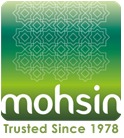Need help? Call us:
+44 116 273 8614
Tibb: Whole-Person Healthcare and Medicine (English)

Introduction
In the traditional civilisations of the Middle East, India and China, we find some of the oldest and most time-tested traditions of healthcare and medicine. In Egypt, textbooks on medicine were written by 3000BC. In India, the traditional Indian medicine Ayurveda, was practiced and taught at university level in 700BC. In China, Traditional Chinese medicine (TCM) was well established by 700BC throughout China, with its roots going back at least to 3000BC.
One of the distinctive features of oriental medicines is that they are an integral part of man’s philosophy, his consciousness and his relationships with other beings and the cosmos. The results are a rich harvest of perspectives and modalities that are unsurpassed both in their profundity and sophistication as well as being practical, economical and ecologically sustainable.
In this article I would like to introduce Tibb: Whole-Person Healthcare & Medicine, and its potential for promotion of health and wellbeing, about which very little in known in the West.
Historical Context
Tibb is a tradition of health, which was synthesised in the crucible of the Middle East, and integrated elements from Egypt, India, China and classical Greece. ‘Tibb’ is an Arabic word, which in different places has been referred to as Arabic, Greco-Arab, Hikmah, Islamic, Sufi and Prophetic medicine. Some of the most illustrious names, such as Ar-Razi of Persia, Ibn Al-Baytar of Andalusia, Mainmondes of Egypt and Ibn Sina were practitioners and teachers of Tibb. Today, Tibb continues to provide healthcare for millions of people in India, Pakistan, Afghanistan, Bangladesh, Malaysia and various parts of the Middle East.
Wholeness and Balance
The word ‘Tibb’ literally means nature. Tibb is a body of knowledge and practice, which maintains health and endeavours to restore it whenever lost. Health is a purposeful condition of dynamic balance, in which all the functions are carried out in a correct and whole manner. The concept of wholeness and balance permeates the philosophy, principles and practices of Tibb. In historical times, the condition of wholeness and balance was the norm for most human beings. However, as people and societies moved away from natural patterns, disharmony and diseases increased.
Diagnosis
There are three types of professionals within Tibb: Hakim, a philosopher/physician, Tabib, a physician and Mualliaj, a practitioner. Each physician within the Tibb tradition works with the whole person. The diagnosis or evaluation is to assess the whole person, while attempting to locate the focus of any given disease. The imbalance may be located within one or more of four levels. In addition, and depending upon (a) the individual patient’s temperament (Mijaz) and (b) the level of their imbalance – the physician can use one or more of the techniques or modalities to enable order and balance.
Treatment
On the physical level he may select massage, manipulation or cupping. This may be complemented with subtle changes in diet supported by a simple or complex remedy from rich materia medica, mostly from plants. If necessary and appropriate, the physician can use wholistic psychotherapeutic measures to balance the inner dimensions of emotions or thoughts. If there is a spiritual imbalance, then the Hakim may use (ruhaniat) logotherapy to harmonise the transcendental aspects at the core of a human being.
Tibb in the 21st Century
The following factors all contribute toward creating dissatisfaction and alienation within sections of health service users:
-The prohibitive cost of technological medical systems.
-Modern medicine’s inability to cure increasing chronic diseases.
-Rising levels of negative side effects produced by chemical drugs.
-Dehumanisation in the organisation of institutional medicine.
In the non-industrialised parts of the world, provision of adequate healthcare facilities on the European or North American model is impossible. The worldwide awareness of ecological imbalances together with need and desire for sustainable lifestyles highlights Tibb as an excellent tradition that can provide effective and sustainable models of healthcare and medicine.
“One of the distinctive features of natural medicines is that they are an integral part of man’s philosophy, his consciousness and his relationships with other beings and the cosmos.”
The wholistic and integrative perspective of Tibb can enable synthesis and development of the individual in the context of the family and the community. The emphasis of oneness and unity enable connectedness and not disintegration, which is often the hallmark of drug and surgery-based methods. The consequence of a wholistic perspective is development and interconnectedness.
In the 21st century the theme of interconnectedness and interdependence will be of psychological and practical significance. Tibb, while able to deal successfully with physiological imbalances, is however most useful in psychological disorders.
The clarity within the Tibb tradition regards the genesis, nature and purpose of a human being and provides a vision that is above time and space. It recognises the transcendental aspect of human beings and acknowledges the spiritual nature of each person, which can enable and galvanise individuals towards transformation and unification, an essential need of the 21st century.
“Contemporary western men and women, in quest of the sacred and the rediscovery of pontifical man, seek techniques of meditation which overcome the excessive cerebral activity which characterises modern mental activity, allowing the agitated mind to simply be. The quest may include yoga, oriental forms of medicine, natural food and medicine and the like. In reality the quest is for the heart which, in the spiritual person, who is aware of his vocation as man, “penetrates” into both the head and the body, integrating them into the centre, bestowing a contemplative perfume to mental activity and intellectual and spiritual presence to the body, which is reflected in its gestures and motion.”
This potential towards transformation and unification constitutes the excellence and zenith of Tibb, balanced, whole person healthcare and medicine.
Disclaimer:
This information is provided for education and information purposes only. Please consult your healthcare professional for personal advice.
© 2009 by M. Salim Khan M.D. (M.A.) M.H. D.O.
Consultant Herbalist, Nutritionist and Iridoligist Mohsin Health
Founder and Principal of The College of Medicine and Healing Arts
www.mohsinhealth.com
www.comha.org.uk


